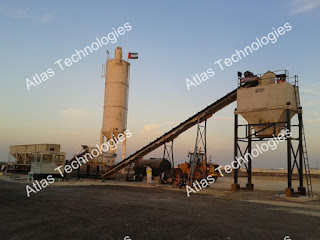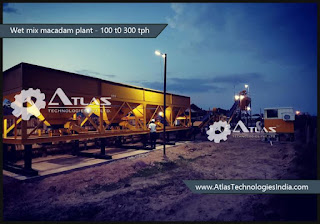What are the key advantages of using WMM produced at Atlas plants for road construction projects?
Here are a few key points about Atlas soil stabilization plants and Wet Mix Macadam (WMM) for road construction projects:
Atlas soil stabilization plants are specialized facilities used to produce WMM, a high-quality sub-base material for road construction.
WMM provides a stable and durable foundation for roads. It is a crucial component of the road construction process, helping to ensure the long-term integrity and performance of the finished road.
The WMM produced at Atlas plants is made by mixing crushed stone, sand, and a stabilizing agent like cement or bitumen. This creates a homogeneous, well-graded material that can be compacted effectively.
Using WMM produced at Atlas plants helps road construction projects achieve a strong, consistent sub-base that can withstand heavy traffic loads and environmental stresses over time.
The quality control and specialized equipment at Atlas plants allows for reliable, large-scale production of the WMM needed for major road infrastructure projects.
In summary, Atlas soil stabilization plants play an important role in the road construction industry by manufacturing the high-performance WMM sub-base material that is essential for building durable, long-lasting roads. Their specialized facilities and processes help ensure quality and consistency.
There are several key advantages to using Wet Mix Macadam (WMM) produced at Atlas soil stabilization plants for road construction projects:
Consistent Quality and Durability:
The specialized equipment and quality control processes at Atlas plants ensure a consistently high-quality WMM mix.
This helps create a strong, uniform sub-base that can withstand heavy traffic loads and environmental stresses over the long term.
Efficient Large-Scale Production:
Atlas plants have the capacity to produce large quantities of WMM efficiently to meet the demands of major road infrastructure projects.
This allows construction projects to obtain the necessary sub-base material in a timely manner.
Optimized Material Composition:
The WMM produced at Atlas plants is carefully formulated to have the ideal blend of crushed stone, sand, and stabilizing agents.
This optimized material composition provides excellent load-bearing capacity, permeability, and resistance to deformation.
Cost-Effectiveness:
The economies of scale and specialized production processes at Atlas plants help keep the per-unit cost of WMM competitive.
This can translate to more cost-effective road construction projects overall.
Environmental Benefits:
Atlas plants use efficient processes and recycled materials where possible to minimize the environmental impact of WMM production.
This supports more sustainable road construction practices.
In summary, the key advantages of using WMM from Atlas plants are its consistently high quality, efficient large-scale production, optimized material composition, cost-effectiveness, and environmental benefits - all of which contribute to the successful completion of durable, reliable road infrastructure projects.




Comments
Post a Comment